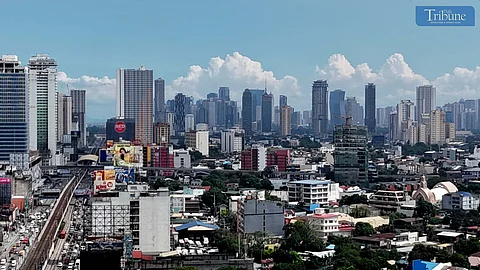
- NEWS
- the EDIT
- COMMENTARY
- BUSINESS
- LIFE
- SHOW
- ACTION
- GLOBAL GOALS
- SNAPS
- DYARYO TIRADA
- MORE

The National Capital Region Police Office (NCRPO) has recorded a decline in criminal activity during the first four months of 2025, with index crimes falling by more than 26 percent.
From 1 January to 5 May, the NCRPO logged a total of 1,627 index crime cases across Metro Manila, a decrease from the 2,201 cases documented over the same period in 2024.
The drop was attributed to increased police visibility, improved training, community engagement, and swift law enforcement responses.
NCRPO chief Anthony Aberin said the police force’s “Able, Active, and Allied” strategy in policing has strengthened deterrence and law enforcement efficiency. He emphasized that public safety thrives when the police are proactive and trusted by the communities they serve.
“There is no substitute to a police force that is seen, heard, and felt by the community,” Aberin stated.
The decline was most evident in six of the eight major crime categories tracked by the police. Theft, which ranks as one of the most reported crimes in the region, dropped from 944 incidents last year to 649 this year.
Rape cases fell from 401 to 282, while physical injuries were reduced from 237 to 168. Homicide cases went down from 52 to 37, and murder incidents dropped from 139 to 102. Robbery also declined, with 230 cases reported this year compared to 283 in 2024.
The NCRPO also noted improvements in how effectively crimes are being solved. The crime solution efficiency rate rose from 68.83 percent in 2024 to 70.99 percent in 2025.
Aberin also highlighted the effectiveness of sustained police operations between 23 November 2024 and 3 May 2025.
During this period, Metro Manila police conducted 103 operations, which led to the arrest of 105 individuals involved in various criminal activities. These operations resulted in the confiscation of 89 firearms and 337 rounds of ammunition. Additionally, law enforcers seized more than 755 grams of shabu and over 259 grams of marijuana, with an estimated street value of P4.7 million.
He assured the public that all operations are carefully planned and executed in coordination with the judiciary to avoid violations of due process and human rights.
“This operational strategy is in accordance with the President’s call to ensure that all police operations are legal and within established procedures,” Aberin said.
